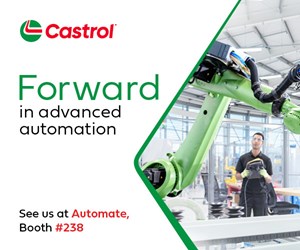An asset protection plan should be established through a lifetime plan and devised simultaneously with estate planning. For most law-abiding Americans, asset protection is a three-category subject: 1) protect you and your spouse; 2) protect your children and grandchildren; and 3) protect your business.
Before detailing the categories, it is important to understand the goal of asset protection: to protect assets from possible lawsuits, creditors, divorce claims and frivolous claims.
The following is a list of the basic dos, don’ts and other strategies to make sure your assets are
protected.
Protecting You and Your Spouse
To protect the assets of your residence, you should transfer it to a “qualified personal residences trust.” Another option is hold 50 percent of the title in your revocable (estate planning) trust and the other 50 percent in your spouse’s trust.
• In regards to other real estate you own, each property should be in a separate LLC. As an exception, properties that are not too valuable can be grouped in one LLC.
• Transfer investments, including cash, stocks, bonds and CDs, to a family limited partnership (FLIP). Other investments include interests in the previously mentioned LLCs.
• Other practices to keep in mind for optimal asset protection are: always carry umbrella liability insurance; never serve on the board of directors (profit or not-for-profit) without adequate error and omissions insurance; and never co-sign or guarantee loans for friends or family.
• Cars can be an expensive asset destroyer, so don’t own the car of an adult child. Also, don’t own vehicles jointly with your spouse, and don’t let other people drive your car unless your insurance has proper coverage.
• If you are getting married, you and your spouse must execute property powers of attorney, and a prenuptial agreement is mandatory.
Protecting Your Kids and Grandkids
In order to protect the assets passed down to future generations of your family, keep in mind the following practices:
• Never leave property—including life insurance proceeds or retirement plan funds—directly to a minor. Instead, always leave it in a trust, a FLIP or some other protection device.
• Never have your kids own life insurance policies on your life (or second-to-die).
• If your kids or other family members own stock in your closely held business, a unit buy/sell agreement can ensure that the business stays in the family. In addition, give the kids limited (non-voting) units in the FLIP, which is a perfect asset protection device because it can lock out an ex-spouse.
• If you live in a community property state, such as Texas, California or Louisiana, remember that gifts and inherited property are not in the community, so the spouse has no ownership. In all other states, gifts, inherited property and property owned prior to marriage are considered non-marital property. This means a spouse has no claim. Never co-mingle non-community property with community property or non-marital property with marital property.
• Sometimes kids must be protected from themselves. If a minor, or even an adult, is a spendthrift, is on drugs or has special needs, or other problems, set up a trust accordingly.
Protecting Your Business
Don’t operate your business as a sole proprietorship or as a general partnership. Instead, incorporate your business.
• Keep your corporation thin. The corporation should own only those assets that are absolutely necessary to operate: cash (distribute excess cash if it is an S corporation), inventory and accounts receivable. A thin corporation is not a good target for a lawyer going after big bucks.
• Land the business uses to operate, expensive equipment and vehicles are all assets that should by owned by separate LLCs and leased to the corporation.
• The company should not use its cash for investments, artwork or any other non-business asset.
• If you are a C corporation, then you should become an S corporation so you can make distributions (dividends) without being double taxed.
• Your corporation should never own life insurance on any stockholders because the proceeds are open to creditor claims.
• If you are opening a new location or diversifying with a new product or service, consider starting a new corporation.
To conclude, asset protection is an essential part of your lifetime plan. It is designed to protect your wealth from any third party or court that tries to take it away.
When you work with an experienced advisor, asset protection is easy, quick and best of all, inexpensive.










.png;maxWidth=300;quality=90)







